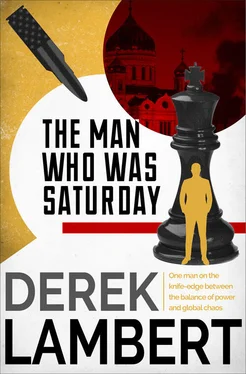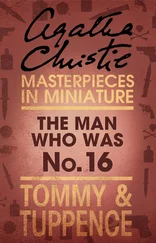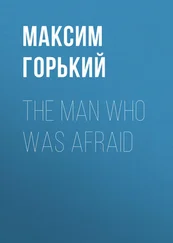He gestured out of the window at the grey sky drooping over Red Square. ‘A typical Moscow day.’ He sipped his fortified tea.
‘Spring is just around the corner,’ she said brightly. ‘March the eighteenth, Maslennitsa .’
Madame, he thought, you delude yourself. There was no way winter in Moscow would be locked away that early; in any case Maslennitsa was a country festival. But all Muscovites were the same: they couldn’t accept the slightest criticism of their capital city.
That was because they were Russians and still believed that the Russian republic was the Soviet Union. Didn’t they ever pause to consider the other fourteen republics? The hundred or so ethnic groups speaking different languages? Moldavians, Uzbeks, Armenians, Georgians …. Didn’t they ever cast their eyes to the sun-drenched south, peer down the Golden Road to Samarkand?
But soon they would have to face reality. Admittedly Russians accounted for more than half the 260 million or so inhabitants of the Soviet Union but the combined populations of the other republics were overhauling them, particularly with virile Georgians multiplying like rabbits. Then the Slavs in the Kremlin would have to tread warily.
‘You’re looking very smart today, ‘he told Yelena. He couldn’t quite muster ‘attractive’ even though it was Women’s Day. But he had bought her half a dozen pink carnations flown in from Tbilisi – at a knockdown price because he was Georgian.
‘Thank you, Comrade Spandarian,’ bright cheeks bunching. She was severely built and the rouge gave her a clownish air.
Spandarian finished his tea and dismissed her. ‘ Adlobt .’ He spoke Georgian whenever he could. ‘That will be all.’
When she had gone he lit another yellow cigarette and stared through the window at the clustered cupolas and spires of the Kremlin. The Politburo was meeting there tomorrow; thirteen strong and not a Georgian among them. It was enough to make Stalin turn in his grave. Nine Russians, two Ukrainians – the Russians had to pay lip service to the fifty million restless souls in the south-west – and a couple of minority republics.
But with the appointment of Mikhail Gorbachev as Party Leader, the old order was changing. Out with the aged roosters, in with the young hawks. And who better placed to lead them one day than an up-and-coming Georgian KGB department chief?
Spandarian, head of the department responsible, within the Second Chief Directorate, for the defectors in Moscow, smiled crookedly at the gilded baubles across the square.
He closed his eyes and the baubles became a bunch of purple grapes freshly washed and glistening in a bowl in the restaurant at the top of the funicular climbing Holy Mountain in Tbilisi. He was eating lobio , beans in walnut sauce – his mouth watered – and drinking red Khvanchkara, the wine that Stalin, the most wily Georgian of them all, drank. Beneath him sprawled the city, cobblestone streets teeming with gangsters and girls with beckoning eyes, cafés filled with conspirators, perfumed air rustling with money and intrigue.
No, there was no one better equipped to scheme his way to the secretaryship of the Communist Party than a devious Georgian. Why in Tbilisi the name of Otari Lazishvili, Godfather of the ‘sixties who had swindled the State out of two million roubles and lived like a Rockefeller, was revered alongside Stalin’s. Recently the Kremlin had decided to purge the Georgian Mafia. Fat chance.
Spandarian saw himself as part Stalin, part Beria – Stalin’s police chief and executioner – part Lazishvili.
But a much more polished schemer than either Stalin or Beria. Stalin, God rest his soul, was only a cobbler’s son and when Beria wanted a woman he pulled her off the street! Spandarian, who was forty-two, belonged to an aero club and flew his own plane in Georgia, favoured sharp suits, had his wavy brown hair cut by a barber imported from Tbilisi, jogged and enjoyed modern music and read contraband Playboy magazines. The naïve sometimes asked him how he got away with it; the answer which he never supplied was simple – he had too much on his bosses and, for that matter, the granite-faced old men in the Kremlin.
Just the same he had to succeed at the job in hand. Fail, like a five-year plan, and you were doomed whatever clout you possessed. Spandarian opened his eyes and met the gaze of the ubiquitous V.I. Lenin regarding him shrewdly from the wall of his sumptuous office. Then he picked up the fattest file on the leather-topped desk, opened it and began to read the computer summary.
ROBERT EWART CALDER
Born April 5, 1946, Mt. Vernon, Boston.
Height: 1.8 metres.
Educated: New England prep and Harvard.
Profession: lawyer.
Specialisation: member of legal team advising Secretary of State.
Marital status: divorced.
Progeny: one son, Harry, by ex-wife, Ruth.
Recreations: baseball, sailing and chess!
Spandarian wondered if the computer had added the exclamation mark unprompted.
Character: determined but resolution undermined by adolescent ideals exacerbated by death of brother in Vietnam.
First approach: second year Harvard. At Elsie’s, Mt Auburn St. (A whorehouse, Spandarian had surmised at first. In fact an establishment selling king-size sandwiches to students).
Progress: finally suborned third year – Cross-Ref 8943XA, Infiltration US universities.
Grading: B but promoted when posted Washington.
Value: inestimable until blown.
Spandarian speed-read the rest of the summary. Reactions to Soviet life-style, sexual inclinations, companions, ideological stability, veracity of information brought from Washington ….
He paused, feeling the last sheet between his fingertips. What information? Value: inestimable …. What the hell did that mean? To his Georgian mind in which every highway was a maze, the lack of definition jarred.
Ever since he had taken over the department Calder had bothered him. The apartment on Gorky Street, the dacha, the air of impregnability that he carried with him like a briefcase full of secrets …. Spandarian suspected that Calder possessed knowledge that had been denied to him and that was insufferable.
Which was why he had mounted Grade 2 surveillance on the American. Grade 1 as from now, following Dalby’s report that he had expressed doubt about the manner of Kreiber’s death and was generally expressing disquiet.
And today Calder had made his own contribution to that surveillance. Mimosa indeed! Spandarian picked up the eggshell blue folder and peered into the life of Katerina Ilyina.
CHAPTER 4
The Kremlin – kreml , fortress – is the hub of Moscow, more so than the seats of government of most capital cities. Driving into town there is no escape from it, the great avenues converging on it like the spokes of a wheel.
Around this fabled triangle of palaces, towers and cathedrals and around the old town of Kitay-Korad lie seven squares hemmed by a belt of green boulevards which are linked in the south, beneath the Kremlin’s walls, by the River Moscow. After the boulevards, and the next layer of assorted development – Czarist baronial, Stalinist wedding-cake, 1980s’ functional – comes the Sadovaya, the Ring, the city’s broadest highway, and finally a roaring motorway that girdles Greater Moscow as the Périphérique girdles Paris.
Katerina Ilyina lived on a spoke of the wheel, Leningradsky Prospect, leading to Sheremetievo Airport and, eventually, Finland.
When he crossed the Sadovaya, Calder pulled into a side road to consult the map Katerina had drawn. She would never make a cartographer: she even managed to make Leningradsky, as wide and straight as a runway, look like the trail of some demented insect. Past the Bolshevik sweet factory, she had said, not far from the Dynamo stadium.
Читать дальше












